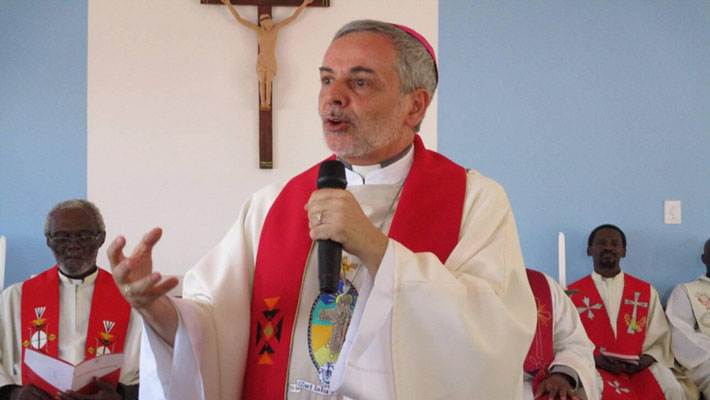MANZINI, MAY 22, 2020 (CISA)-Rt. Rev. José Luis Ponce de León IMC Bishop of the Catholic Diocese of Manzini has urged the Church to find new solutions to the emerging problems posed by the onset of Covid-19.
“The future might be nothing like the past. The World Health Organization Emergencies director called us to consider the possibility that the Covid-19 never goes away… Let us not live the present waiting to return to the past. Let us look at the present and to the future and, with the same faith, hope, love and enthusiasm, look for new answers to new challenges,” he said in a May 21 message for the feast of the Ascension of the Lord.
The bishop noted that he had not anticipated to celebrate Holy feasts under such circumstances but noted that the call to evangelization stands regardless.
“Announcing this special time of grace for our diocese I never thought we would face months of it in a full or partial lock-down. We planned special events thinking everything would be as usual. It was not. It is still not and we are all unable to talk about the future. It is the context that has changed, not our call…there might not be a going back to normal in the future and we will then be called to be missionaries in new ways,” he said.
He called on Christians to continue supporting and protecting each other during the pandemic by following health guidelines and looking out for the vulnerable.
“We also show our being Christians by caring for each other in the simplest things like keeping social distance, wearing masks, washing our hands, being careful of what we share on social media… Do not underestimate any of this…Every little act of love counts…Solidarity is the only way forward for the present and the future,” he noted.
He lamented that the inability of Christians to receive sacraments and congregate has left some completely unprepared not knowing how to be close to God while stay at home orders have become a source of family tensions and abuse, a source of depression and anxiety, and problematic for people with uncomfortable homes or no home at all thus revealing the weakness of our personal and social fabric.
“What about all the self-employed people, selling in the streets whose only income is what they themselves are able to make on a day to support their families…? “Wash your hands” we are also told, but what do we do when there is no water?” he posed.
“Our diocesan initiatives, important as they are, only reach a small percentage of the people. God’s question: “where is your brother” calls you and me to know what each one of them is going through and then make ourselves neighbours like the good Samaritan,” he said.

